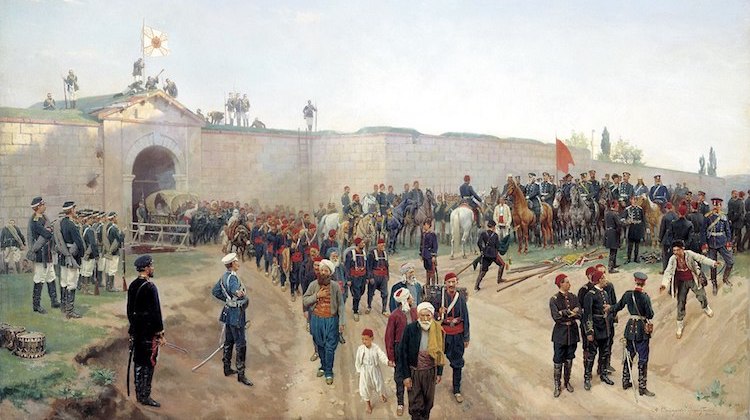Viewpoint by Jonathan Power
LUND, Sweden (IDN-INPS) – By 1914 Europeans ruled 84 percent of the globe. How did they do it? Eleven hundred years ago Europe was a backwater. There were no grand cities, apart from Muslim Cordoba in Spain, and the remnants of Rome and Athens. The Middle East, India and China were further ahead. It was the Arabs who kept alive the teachings of the Ancient Greek’ knowledge of science, medicine, architecture and philosophy.
We now have two schools of thought. Professor Philip Hoffman of Caltech university argued in his book ‘Why Did Europe Conquer The World?’ that Europe’s pace of innovation was driven by a peculiar form of military competition which he called a “tournament” – the sort of competition that under the right conditions can drive contestants to exert enormous efforts in the hope of earning a prize.
Europe, unlike the Ottoman Empire and China, was a very un-unified kind of place. Since the fall of Charlemagne in 814 there was no one strong enough to hold Europe together. Dozens of small states and principalities, often vying to be top dog, were stimulated to nurse their competitive instincts, and in doing so and fighting they refined their military capabilities more than any of other world’s peoples.
European rulers raised taxes and lavished resources on armies, navies and gunpowder technology. Moreover, unlike in Asia, private entrepreneurs faced few legal, financial or political obstacles to launching expeditions of conquest and exploration. This is why the British East India Company could conquer much of India.
In contrast, China was a massive hegemon; Japan and the Ottoman empires sizable ones; India partly one. A hegemon inevitably comes to believe that since it’s political dominant it doesn’t have to work so hard at maintaining superior arms.
So when it came to gunpowder technology and its adaption to warships the European powers, each seeking to outscore the other, could often call the shots against Asia’s hegemons.
The wars that led to Europe’s and particularly Britain’s domination of the world made possible the Industrial Revolution, not vice versa as is commonly thought.
Now comes along a book with a different take on all this – ‘Empires of the Weak‘ by J.C. Sharman, professor of International Relations at Cambridge University. He doesn’t appear to have read Hoffman’s book, but it reads as if he was refuting it.
In Latin America the Conquistadores, who did set out to conquer, won through because of alliances with smallish local kingdoms and the spreading of European diseases. They did not win because of superior military technology. Pizarro who conquered the Incas had an army of only 170. Pizarro did indeed have guns which the Incas didn’t but they were just a few canons and basic muskets. Fighting was mainly hand to hand.
In Africa, the imperialists limited themselves to border posts where they bought slaves from local chiefs. Incursions into the interior when they happened later were pioneered with small groups of soldiers, also fighting hand to hand.
Sharman argues that, apart from the Americas, Europeans did not gain military superiority during the period of European expansion from the fifteenth century to the late eighteenth century. He posits that European success in this era is explained by deference, and even subordination, to strong Asian and African politics, the import of deadly European diseases in the Americas and maritime superiority earned by default because these local land-orientated polities were largely indifferent to war and trade at sea. A Chinese admiral once led a look-and-see trip to Africa but then ignored it.
What does he mean by “deference”? He points out that the Europeans were not sending overseas the big armies they used in Europe. Small bands of adventurers, expeditionary forces and private chartered companies who relied on the cultivation of local allies, led the expansion. They had to “go along to get along”. What Europe did could not compare with the spreading of the Asian Empires – the Ottomans in the Near East, the Mughals in South Asia and the Ming and Manchu Qing in China.
At the time when Europe began its imperialism the Chinese and Mughal empires were more economically developed than Europe. “In the main.” writes Sharman, “Europeans were realistic that they stood little chance of mastering foes who could put far superior forces in the field against them, and so Europeans deferred to the authority of the Asian empires.”
Only with the advent of the Industrial Revolution did Europe begin in 1760 to outclass and defeat the Asian and Ottoman empires. Competition with each other moved Europe to conquer Africa, apart from Christian Ethiopia.
Sharman’s book now puts a real debate on the academic mat. We spectators can enjoy this intellectual joust. It’s not easy to tell who is right.
Note: Jonathan Power was for 17 years a foreign affairs columnist and commentator for the International Herald Tribune. Copyright: Jonathan Power. Website www.jonathanpowerjournalist.com. [IDN-InDepthNews – 19 March 2019]
Photo: Ottoman capitulation at Nikopol, 1877. Credit: Nikolai Dmitriev-Orenburgsky | Wikimedia Commons.
IDN is flagship agency of the International Press Syndicate.
facebook.com/IDN.GoingDeeper – twitter.com/InDepthNews
Send your comment: comment@indepthnews.colo.ba.be
Subscribe to IDN Newsletter: newsletter@indepthnews.colo.ba.be

